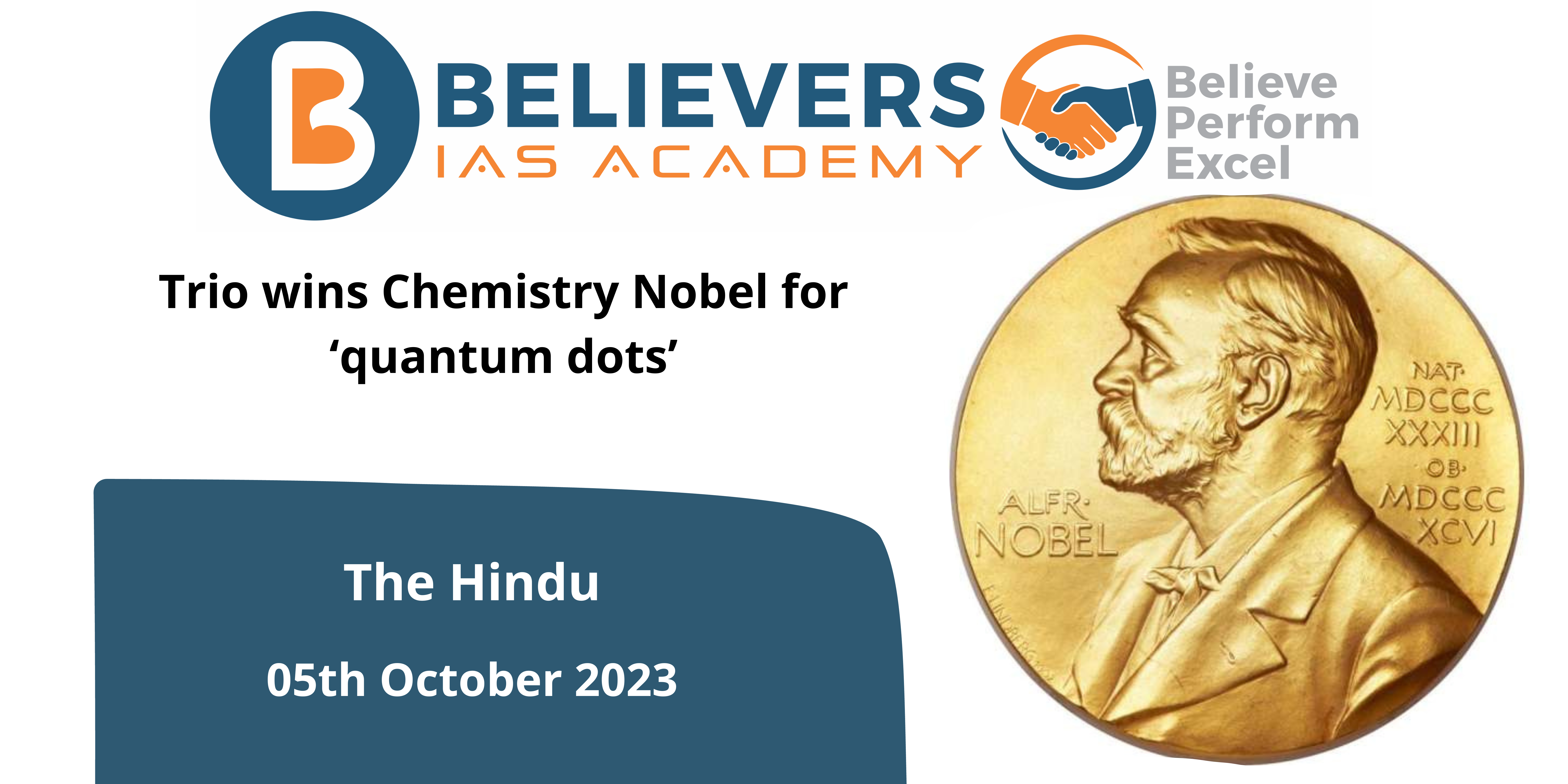Trio wins Chemistry Nobel for ‘quantum dots’
Context
Alexei Ekimov, Louis Brus, and Moungi Bawendi have been awarded the 2023 Nobel Prize in Chemistry for their work on quantum dots, which are very small crystals with unusual properties that have found application in a range of disciplines ranging from new-age LED screens to quantum computers.
What is the Nobel Prize?
- Each year, the Nobel Prize is given to a person or group of people who have made a significant contribution to humanity. The prizes are awarded in the following fields: Physics, Chemistry, Physiology or Medicine, Literature, Peace.
- The first Nobel Prizes were awarded on December 10, 1901, the fifth anniversary of the death of inventor Alfred Nobel. The prizes are given to men, women, and organizations.
- Each reward includes:
- a prize
- a distinct diploma
- cash prize
Who won the Nobel Prize in Chemistry for the year 2023?
- Alexei Ekimov, Louis Brus, and Moungi Bawendi were jointly awarded the Nobel Prize in Chemistry in 2023.
- The Nobel Prize was given to them for their groundbreaking research on quantum dots, which are small crystals with unique properties.
- Quantum dots are extremely small, typically a few nanometers across and containing only a few thousand atoms.
What is Quantum Dots and what is the significance of the discovery?
- Quantum dots are small semiconductor particles with dimensions of a few nanometers. They were discovered for the first time in 1980.
- Quantum dots are distinguished by their optical and electrical features. They’re known as “artificial atoms” by experts. The size of quantum dots is critical in defining their electrical and optical properties.
- The following are the qualities of quantum dots:
- They have an extremely high surface-to-volume ratio.
- The size of the particles can cause them to produce unique hues.
- When energy is given to them, they can emit light of specified wavelengths.
- They can move electrons.
- Quantum dots are used because of their distinct optical characteristics. They provide great colour fidelity and a larger colour range than is required for high-definition television.
What are the applications of the Quantum Dots?
Quantum dots have found use in a variety of fields, including:
- Entertainment: LED screens are utilized to provide vivid and energy-efficient displays.
- Quantum computers: The use of quantum dots in quantum computing is being investigated.
- Flexible Electronics: Quantum dots have great promise for flexible and high-performance electronic devices.
- Miniature sensors: They can be used as tiny sensors for a variety of applications.
- Slimmer solar cells: Quantum dots have the potential to improve the efficiency of solar panels.
- Encrypted quantum communication: Quantum dots may have a role to play in secure quantum communication.
Conclusion
This Nobel Prize honours these scientists’ important contributions to nanotechnology and quantum physics, which have paved the way for numerous technological developments and inventions.




